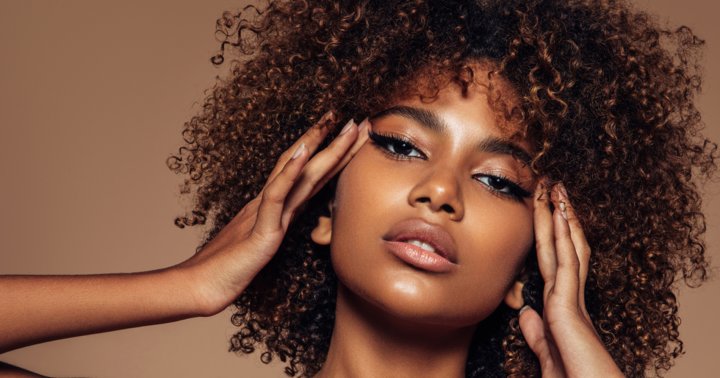Have Dry, Dull Hair? Add This Vitamin To Your Routine, ASAP
It may be just what you need for shiny, glossy strands.

Topical vitamin C comes with a laundry list of benefits, but perhaps the most popular is its skin-brightening abilities. With its free-radical-fighting power, the classic antioxidant can even out your skin tone, ease dark spots, and offer a serious glow. It's no wonder vitamin C has earned the top spot in many expert beauty routines.
We certainly can't get enough of the brightening antioxidant, which raises the question: Does it have similar perks for your hair? It turns out, vitamin C may be just what you need for shiny, glossy strands.
What does vitamin C do in hair care?
Just as topical vitamin C serum can help brighten your skin tone, vitamin C in hair care formulas can also help enhance shine. See, vitamin C has powerful antioxidant properties, which help neutralize oxidative stress and free radicals that contribute to hair aging—and hair aging often results in a duller color. It's why many brands will fold vitamin C into their serums, masks, shampoos, et al., since it's top-notch for strong, healthy strands.
You can even find vitamin C powders, like dpHUE's Brightening Powder, to restore shine with a single wash. "Vitamin C, when paired with a gentle chelating agent, helps to not only brighten your hair but also remove buildup," says celebrity stylist and hair expert Justin Anderson, co-founder of the brand. "This combination works to prevent dullness and brassiness that can occur from hard water, pollution, and excessive product use."
At this point, you're probably wondering: How does vitamin C hair care differ from other brightening products, like purple shampoo? Well, the two are slightly different, and you can absolutely include them both in your routine. "Toning shampoos work to neutralize any unwanted brassy tones in your hair," notes Anderson, while vitamin C powders "contain chelating agents that act as a magnet to help remove the metals, chlorine, minerals, and product residue that make hair look dull." If you already use a purple shampoo, you can go ahead and stick to your regular cadence and add vitamin C powder once a month as needed.
Of course, vitamin C plays a role in hair health overall, beyond topicals: "Vitamin C increases the absorption of iron, which is one of the most critical nutrients for your hair,"* certified trichologist and founder of Advanced Trichology William Gaunitz, FWTS, says about hair vitamins. See, without proper iron intake, hair follicles do not function properly—so you want to make sure you get enough in your diet. Consuming antioxidants has also been shown to promote hair longevity, which is why experts recommend eating foods high in antioxidants (or leveraging an antioxidant-focused supplement with your diet, if you please).*
Plus, vitamin C can promote the function and resilience of a healthy immune system, and a resilient immune system is also crucial for healthy hair.* Says Gaunitz, a robust immune system allows the scalp to combat microbes that shouldn't be there at a more efficient level, which is important for improving hair growth.
While all hair types can benefit from vitamin-C-infused serums, masks, and powders, they're especially great for highlighted hair, which can start to develop unwanted tones over time. Don't worry, though: It won't alter your actual hair color, says Anderson—it will just make the hue you have appear way more vibrant.
And given vitamin C's role in healthy hair growth overall, really anyone can benefit from getting more of the essential nutrient. We as humans can't make our own vitamin C (and approximately half of U.S. adults are failing to consume a solid amount), so it's critical to get enough daily through diet and supplements.
Vitamin C plays a major role in hair care: Not only is it crucial for hair growth in general, but topical products can help brighten the pigment, similar to how a serum can even out your skin tone. If your locks are in need of a little pampering, a little vitamin C can go a long way.
If you are pregnant, breastfeeding, or taking medications, consult with your doctor before starting a supplement routine. It is always optimal to consult with a health care provider when considering what supplements are right for you.

 JimMin
JimMin 
































